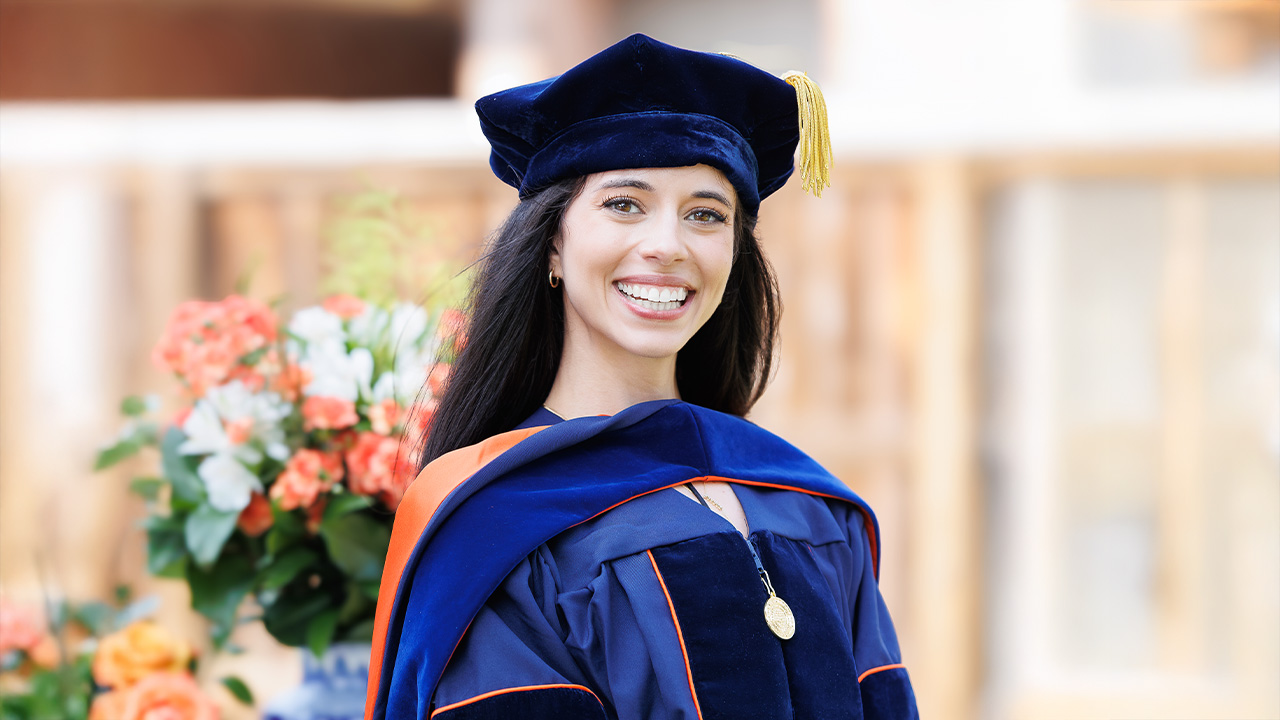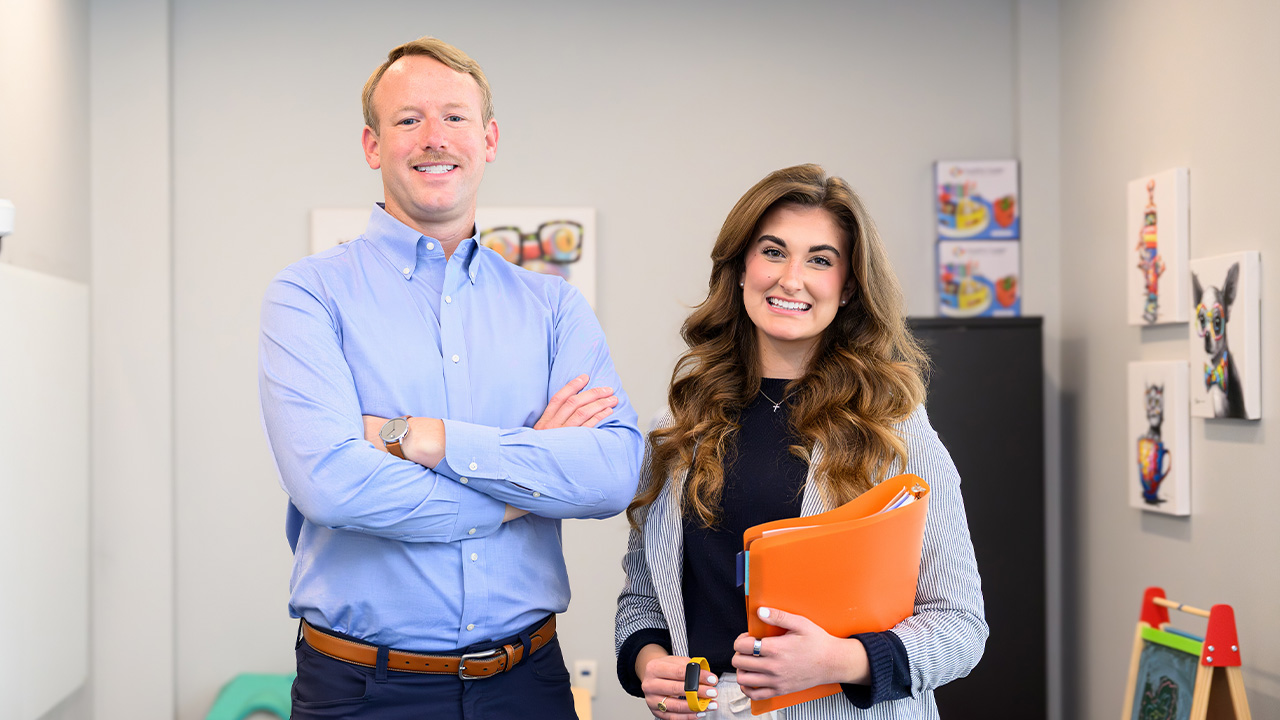content body
Olivia Martín-Piñón worked hard on her dissertation, reviewing past research, collecting data and then analyzing results. So, was she upset when those results were the opposite of what she expected? Not one bit.
“That’s the fun of science; when you don’t find the thing you thought you would, you get to keep looking,” she said. “I think one of the best parts of science is to take those findings and wrestle with them and figure out what they mean.”
A native of Corpus Christi, Texas, Martín-Piñón earned a doctorate from Auburn’s Department of Human Development and Family Sciences (HDFS) in May and is now a Presidential Postdoctoral Fellow at Arizona State University. Since her early research on children’s sleep habits and the autonomic nervous system left her with more questions than answers, she narrowed her dissertation and postdoctoral research focus to how toddler bedtime routines impact sleep in teenage years and how parents’ night shift work affects children’s sleep.
Looking within
Martín-Piñón did not have to look far for inspiration for her research; she describes herself as a “rowdy kiddo” who woke up frequently, and her mom’s overnight nursing shifts didn’t help.
“‘Research is me-search:’ that’s not my phrase, but it’s one I use frequently,” she said. “I slept horribly as a child, throughout my teens and even into my 20s. Like a good nerd, I wanted to figure out why.”
“I made an active choice to seek out a program that would let me keep my love of biology but encourage me to think about how public policy and family structure can impact neurological processes. The College of Human Sciences let me build this very diverse skill set that allows me to do some unique science.”
Driven by the need for understanding, she earned a bachelor’s degree in psychology with a concentration in behavioral neuroscience from Southwestern University in Texas before enrolling at Auburn to complete a master’s and a doctorate in the College of Human Sciences.
As a student, she worked with several faculty members, researching sleep science with Mona El-Sheikh, studying sleep interventions with Ben Hinnant and Brian Gillis, assisting Cynthia Frosch in a study on parents reading to their babies and learning how to translate science for a popular audience with Adrienne Duke-Marks. The opportunity to grow her research skills with top-notch faculty is what initially drew her to Auburn.
“The department’s expert blending of biology with context is top notch,” she said. “I made an active choice to seek out a program and training that would let me keep my love of biology but encourage me to think about how public policy and family structure can impact those neurological processes. It just seemed like the perfect fit.”
She was also drawn to the opportunity to work in a therapeutic setting, helping counsel families in a sleep intervention developed by Hinnant. For Martín-Piñón, the chance to share her sleep research knowledge was life changing.
“It was the most meaningful work I’ve done so far,” she said. “As I was meeting these families, I was thinking about my own family, and it was such a fulfilling experience. I am so honored they trusted us to be that safe place where they could talk about the way their family sleeps, which is quite an intimate thing.”
The research
Some of Martín-Piñón’s most surprising findings have been that people can sleep better when they’re feeling sad than when they’re happy and that parents of children who have behavioral issues use bedtime routines more than parents of children who don’t.
Now, she’s examining the public policy and family structure factors that can affect children’s sleep, including parent work schedules, the support of friends and family, bedtime routine activities and emotional bonds with parents.
“To know the context of exactly when these findings are true is helpful,” Martín-Piñón said. “So, this is where we start to ask questions about things like class, race and chronic stress versus acute stress, and that might help us untangle some of these surprising findings.”
Martín-Piñón said the exciting thing about her research at Auburn, and what she now shares with her own students, is how interdisciplinary neuroscience research becomes when those contexts are included.
After years of study, her areas of expertise have grown far beyond biology, spanning neuroscience medicine, public health, sociology and even feminist theory. It’s that wealth of knowledge that is allowing her to advance sleep research for children — and to make a difference for families.
“The College of Human Sciences let me build this very diverse skill set that allows me to do some unique science,” Martín-Piñón said. “There’s a piece of paper on my fridge that says ‘Remember, you’re doing this to make children’s lives better.’
“All I’m trying to do is help one kid get a better night’s rest than I did.”






